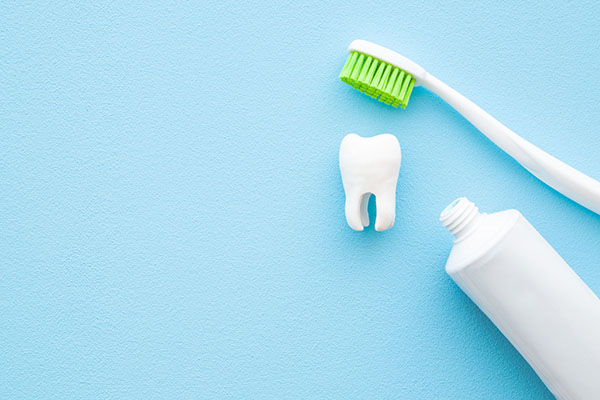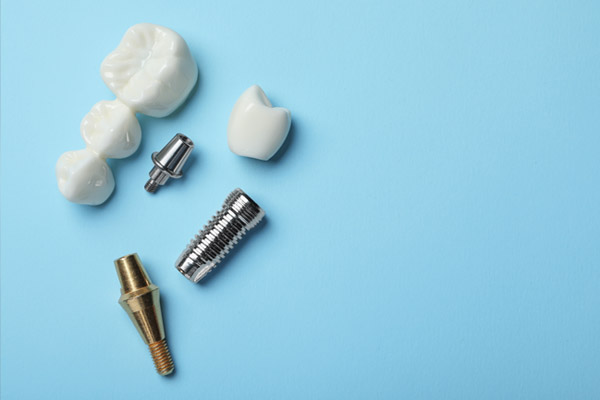 One essential step a person can take to prevent receding gums is to maintain excellent dental hygiene. Most individuals often neglect their gums and focus on dazzling, pearly white teeth when it comes to oral health. However, having healthy gums is just as important as having healthy teeth.
One essential step a person can take to prevent receding gums is to maintain excellent dental hygiene. Most individuals often neglect their gums and focus on dazzling, pearly white teeth when it comes to oral health. However, having healthy gums is just as important as having healthy teeth.
Important hygiene habits for healthy gums
Gum recession has the potential to cause tooth loss. Fortunately, many measures may be taken to prevent the condition. The following oral hygiene habits are essential for healthy teeth and gums, thus preventing gum recession:
Brush properly
Brushing teeth twice a day with a soft-bristle toothbrush is important. It is important not only to brush but to do it correctly. Dental professionals recommend brushing gently with short strokes and at a 45-degree angle. It is also advisable to select a toothpaste containing fluoride and the American Dental Association approval seal.
After brushing their teeth, many individuals rinse their mouths with water. Good oral hygiene habits, on the other hand, are augmented by fluoride products like toothpaste. This means the fluoride is washed away once a person rinses their mouth with water after brushing.
Floss daily
Many individuals overlook flossing regularly, yet it is an essential component of dental hygiene. Flossing eliminates food debris and plaque from between the teeth and gums. If they are not cleaned off, they harden into tartar, a hard deposit of bacteria that only a dentist can remove. Tartar remains a significant cause of receding gums.
Rinse the mouth
Sometimes, brushing the teeth after eating is not feasible. In this case, the better alternative is to rinse the mouth with water. Doing this removes the plaque and food debris that may be lingering in the mouth.
Use mouthwash
The American Dental Association (ADA) distinguishes between medicinal and cosmetic mouthwash. Therapeutic mouthwash helps with gum disease prevention, decreasing the rate of tartar accumulation and eliminating food debris from the mouth. Mouthwash, on the other hand, should not be used as a substitute for brushing and flossing.
Visit the dentist regularly for a checkup
A professional mouth cleaning is usually included in dental exams. Tartar may only be removed from the teeth with the help of professional cleaning. A professional cleaning may also help remove plaque that tends to lurk in oral crevices and is hard to reach by toothbrushes. During such appointments, a dentist can also detect the early symptoms of receding gum disease, an inflammatory gum condition. Early diagnosis usually ensures the prevention of more severe issues.
Quit smoking
According to the Center for Disease Control and Prevention (CDC), smoking inhibits the immune system, making a person more vulnerable to gum disease. The chemicals in tobacco are detrimental to the gums and can cause a gradual recession. To lower the risk of gum disease, dental professionals recommend stopping smoking right away.
In conclusion
Good oral hygiene habits can help prevent receding gums. The objective is to be intentional about oral care and safeguard the teeth and gums against harmful elements. To learn more about oral care habits to adopt, talk to a dental professional today.
Request an appointment or call Rafael E. Cordero, DDS PA at 561-763-9221 for an appointment in our Palm Beach Gardens office.
Recent Posts
Gum disease treatment is necessary to prevent your symptoms from worsening. Your periodontist will assess your gums first and then discuss the treatment options with you. Knowing when to see this dental care provider can help you make informed decisions regarding your procedures. Here are the details on when to see this dentist for gum…
A gum recession treatment can help you regain your smile and dental health. Receding gums can make you conscious about the way you look. It can also cause dental instability and sensitivity. Seeing a periodontist for your gum recession treatment can help you get the results you need.A general dental exam can spot gum recession.…
Dentists talk about the effects of gum disease from the time patients are young. There are good reasons for this, as the disease can have significant impacts on a person’s oral health. The disease is common among children, teens, and adults. Fortunately, it is highly preventable. For the most part, you can take some daily…


